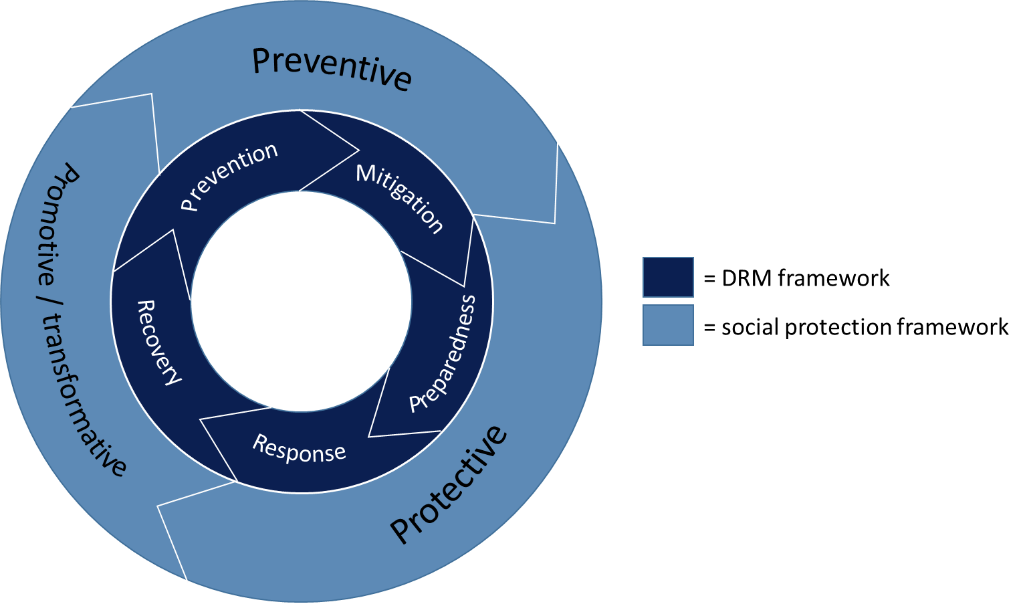The prevailing political dynamics also complicate the essential issue of various social protection schemes


Photo- Dhaka Tribune
Figure 1: Share of SSNP Expenditure as % of GDP
A prominent definition of politics is that it is the art and science of explaining “who gets what” in a society. In that respect, political scientists have used the patron-client political framework to better understand political dynamics that unfolded in many non-consolidated democracies.
Such a framework views politicians as patrons and citizens as clients whose interactions are understood through the lens of reciprocity: the patron distributes exclude-able resources (money, jobs) to dependants in return for their cooperation and support (votes, attendance at rallies, etc). The patron is said to have disproportionate power and thus entertains considerable leverage and power over resource distribution decisions.
The political arena of Bangladesh can also be adequately understood from the lens of the patron-client framework. Even after the re-introduction of democracy in 1991, the democratic process remains non-consolidated, and qualitative political economy examinations have often pin-pointed deep rooted patron-client tendencies in shaping such outcomes.
To be precise, political parties in the government try to use patronage to establish loyalty and allegiance within state institutions to ensure they can distribute resources to their support base. This in essence creates a “winner takes all” phenomenon in politics, which in turn enhances the returns from coming to power and increases the cost of losing it.
Yet, the patron-client tendencies, which are often isolated to explain democratic deficit within the society, also had positive side effects. Under democratic political arrangements, politicians could not ignore citizens as they found an object for trade votes, which in effect softly empowered the general population eligible for participation in election.
Hence, political actors supported reforms and programmes that either advocated private participation of agents in economic activities that was previously produced by some state organs (such as private provision of services related to banking, education, healthcare, etc) or they expanded social services that could reach their clients from whom they periodically seek support.
As a result, it is no surprise that Bangladesh witnessed a massive expansion of social protection programmes in the 1990s as opposed to previous decades, and some governance narratives attribute this success to the nature of politics that prevailed within its landscape.
Even in terms of expenditure in social protections programmes as a share of GDP, it is indicative from Figure 1 that the commitment to social protection schemes has witnessed an overall growth over the last one decade.
Nonetheless, the expansion of social protection programmes in the 1990s coexisted with increase in leakage and corruption. In particular, political conditions that were sufficient to support the achievements of the 1990s were no longer conducive for the reforms needed in 2000s.
Since governance reforms in the 2000s in essence demanded greater accountability and transparency in the use of public resources, political incentives that supported reforms geared towards the expansion of social protection services could not see such reform prescriptions with similar enthusiasm. An issue that further complicates this scenario, in the context of social protection schemes, is the lack of comprehensive evidence on the magnitude of corruption that persist within respective social protections schemes.
For example, the estimates of leakage in the Food-for-Education (FFE) programme provide a mixed state. As depicted in the table, studies that tried to estimate leakage in the FFE programme produced dramatically different results.
To be precise, estimates of leakage and corruption were far lower in Ahmed and Billal (1994) in comparison to estimates produced by the World Bank and BIDS. Furthermore, such inconsistencies concerning the estimates of leakage often armed opponents of governance reforms with the argument that prescriptions inspired by the possible existence of corruption are not grounded in solid evidence.
The prevailing political dynamics also complicate the essential issue of various social protection schemes: the principal targeting challenge of most safety net programmes in Bangladesh is exclusion, and the scale of need is significantly larger than the size of provision. Hence, while all selected beneficiaries may be eligible, a large portion can be excluded despite their eligibility.
These conditions coexisting with a patron-client political norm can allow political leaders to offer selective patronage.
A more challenging concern arises if the same sets of eligible people are included repeatedly, and less well-connected eligible population is left out of social protection schemes.
To conclude, Amartya Sen once stated: “Services for the poor most often result in poor services.” The governance challenges, at present, in the social protection sector are very much related to ensuring that political dynamics do not transform the schemes within the social protection sector into ineffective instruments.
Political factors that aided the supply of social safety net sector in the 1990s are unlikely to be sufficient for the second generation reforms, which makes a case for greater transparency and accountability in the overall sector.
Thus, reform advocates must motivate their prescription on solid evidence and develop awareness concerning the loopholes within the social protection sector.
In other words, for the second generation reforms to materialise, a demand-driven approach for governance reforms is fundamental.







